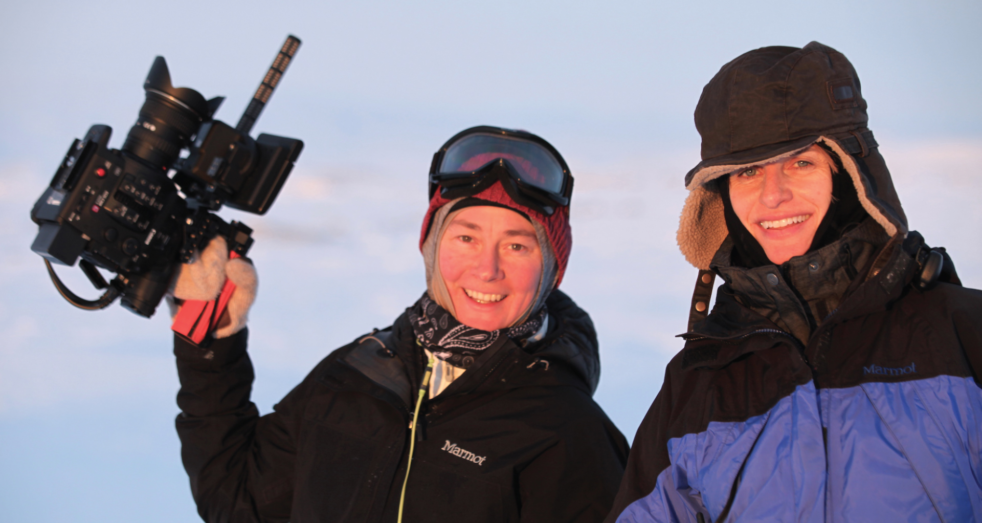In celebration of Women’s History Month, Tech students had the chance to attend a virtual screening of the 20th annual LUNAFEST, a film festival by and for women.
Sponsored by LUNA Bars, LUNAFEST is a program aimed at fueling women’s ambitions as well as their bodies and at amplifying voices that have been typically silenced. Seven short films were featured this year.
The first, “Overexposed” by Holly Morris, tells the story of the first all-women polar crew to reach the North Pole. It is a behind-the-scenes look at what it took to attempt to ski across a fragile crust of ice to reach the pole and is especially relevant as it might be the last of its kind due to melting ice.
Morris’s team followed the all-female team during their 2-year training period, carrying 80 pounds of film gear behind them in sledges to capture the journey.
After seven grueling days on ice, the team reached their destination, confirming their resolve, resourcefulness and sheer power as a groundbreaking collective.
The second short, “Knocking Down the Fences” by Meg Shutzer, profiles professional softball player AJ Andrews and the challenges she faces as a female athlete.
In 2016, Andrews was the first woman to win a Rawlings Gold Glove, an award given to the best fielders in professional baseball.
In the film’s introduction, Shutzer expressed her shock that Andrews was not a household name given her impressive athletic accolades. Through the film, we learn that her underexposure has to do with the way media covers women’s sports and the way female athletes are ignored by the world at large. Andrews is remarkably devoted to her sport.
“I’m going to make sure it ends up in my glove,” Andrews said about “any” ball in her vicinity.
Her teammates describe her as “fearless” and say that she “attacks anything.” According to Andrews, her prowess comes down to pure effort — to making the dive for the ball every single time.
It is telling then, that despite her effort she has to work two other jobs to live comfortably. She makes less than $15,000 a year and Major League Baseball (MLB) players on average make 650 times more than professional softball players.
“AJ Andrews dispels the myth of meritocracy in the U.S.,” said Amira Davis, assistant professor of history at Penn State.
The film explored the widespread belief that women’s sports do not sell and the ensuing decision to not cover them for financial reasons. The gendered pay within the sports world is a pertinent microcosm of gender inequality in the world at large.
Another film included in the festival, “The Scientists Versus Dartmouth,” directed by Sharon Shattuck, chronicles the 2019 sexual harassment scandal at Dartmouth College and the repercussions for the women involved.
The film highlighted the fear female scientists feel in speaking out against harassment doled out by professors. The victims in this case were frightened to lose the careers in science they had worked so hard for, especially under the pressure of a sexually repressive college culture.
Vassiki Chauhan, cognitive neuroscience Ph.D. candidate, got assaulted by her advisor after moving to the United States. She noticed that going out for drinks was the barrier to entry at college and that there were three professors in particular who went to these bars and paid for drinks for their students.
Chauhan says that mentorship at Dartmouth was heavily entwined with drinking culture. Professors incessantly joked about their students’ physical appearance, would set students against each other to keep them from forming bonds, inappropriately touched them and eventually assaulted some.
Eventually, some students began sharing their experiences with each other and realized the magnitude of the problem.
After launching a Title IX investigation, two professors retired and one resigned before they could be officially fired by the university.
In an attempt to find justice and to effect real change through a set precedent, the victims sued the college.
Although none of the women presented in the short film remained anonymous, they had originally planned on it because of their fear of being seen as victims rather than as scientists.
“The Scientists Versus Dartmouth” portrays the fear, isolation and rampant phenomenon of sexual harassment today.
The other four films not detailed in this article are equally important within the LUNAFEST showcase.
They include “A Line Birds Cannot See” by Amy Bench about the perilous journey of one woman immigrating from Guatemala to the United States, “Until She is Free” by Maria Finitzo on the visual representation of sex in the art world, “Connection” by Ciara Lacy about indigineous women in the male-dominated fishing world and “Betye Saar: Taking Care of Business” by Christine Turner about the iconic artist who used derogatory images of Blackness to expose and then shift deeply rooted racist cultures. Each of these films is definitely worth the watch.
